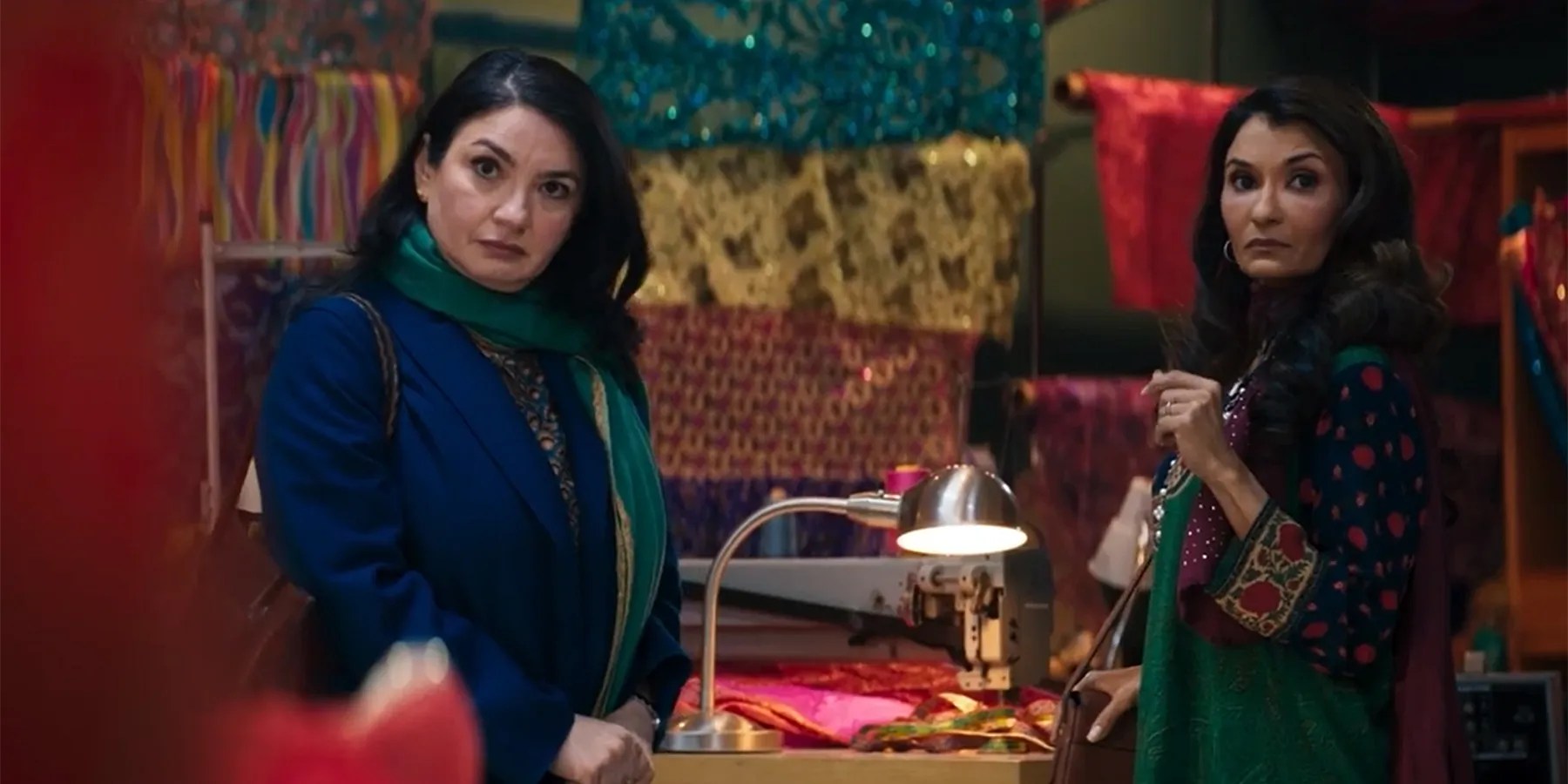The following article contains minor spoilers for Episode 1 of Ms. Marvel.
Ms. Marvelhas introduced the world to the first female South Asian and Muslim superhero to join the Marvel Cinematic Universe. The pilot episode established that Iman Vellani’s Kamala Khan is grappling between two worlds, her teenage life in New Jersey and her cultural roots and religion. But, there are moments in the episode that make it seem like Marvel Studios has taken a subtle approach towards Kamala’s internal conflict.

While all Kamala wants in the firstMs. Marvelepisode is to attend AvengerCon, a first-of-its-kind convention dedicated to the Avengers, she also has to deal with the norms of her community. However, what the episode is lacking to a large extent is the prejudices that she has to face due to her specific cultural differences from those of her classmates or the community at large. As a child of an immigrant family in New Jersey, Kamala often feels like an outcast in the Marvel Comics, and those nuances are missing in the Disney Plus series.
RELATED:Ms. Marvel Episode 1 Easter Eggs
It is absolutely refreshing for many South Asian and Muslim fans to see apositive representation of their culture and religionas part of the MCU. For the longest time, the MCU lacked diversity and was largely a white, male-dominated universe. Phase 4, however, has changed that entirely and introduced several female characters and heroes with different cultural backgrounds. Kamala is the latest to join the fold, and represents a large segment of the fan population. That said, some moments in the firstMs. Marvelepisode could have been a lot more significant had the series explored some of the racism or Islamophobia that Kamala faces in the comics.
With the Disney Plus series, Marvel Studios has the luxury to explore the stories in much more detail than the films. But,the firstMs. Marvelepisodeseems to rush past the specific cultural differences, and without proper context, Kamala might seem like a rebellious child rather than someone dealing with an internal conflict with her culture and identity. She is sometimes unable to relate to her parents' culture having grown up in a “foreign land.” But, the first episode of the series underplays that and makes it seem like she is only trying to break free of her culture and religion. In the comics, on the other hand, both those aspects play a huge role in Kamala’s life.

InMs. Marvel, whenLaurel Marsden’s Zoe Zimmeris introduced, Kamala bumps into her in the staircase, and they have an awkward conversation. Zoe comments on Kamala’s necklace, who informs the former that it is actually her name in Arabic. Marsden’s Zoe scoffs at the comment, and walks away. It is obvious that she isn’t pleased with the information, but no further explanation is offered. In the comics, on the other hand, Kamala often faces racism and Islamophobia in school.
The same scene plays out differently in writing, with Zoe making an inappropriate comment about the headscarf that Nakia Bahadir, Kamala’s best friend, wears and goes on to joke about her father resorting to “honor killing” if Nakia were to take it off. The headscarf, or hijab, thatYasmeen Fletcher’s Nakiais seen wearing inMs. Marvelis a symbol of her Muslim faith, whereas honor killings are a terrible stereotype connected with certain cultures, and have nothing to do with Nakia and Kamala’s religion. With Zoe making the ignorant comment, it establishes a high level of racism that the friends experience. Any form of racism would have an impact on an individual, and the way people perceive her culture and identity has Kamala sometimes feeling like an outcast in the comics. It also made her one of the most human and relatable heroes.

If a scene like that were to be included inMs. Marvel, it would explain the prejudice that Kamala has to face on a daily basis, and help viewers better understand her personal journey. Instead, the first episode of the series has a scene where Kamala’s mother Muneeba runs into a friend at a store and gossips about a young Muslim girl “gallivanting” around Europe instead of getting married. When Kamala stands up for her, the two older women simply glare at her. It almost seems like the series negates the Islamophobia that Kamala and children like her in the real world have to face. Marvel Studios seems to be taking a more subtle approach by including internal commentary within the community, instead ofaddressing the serious topic of racism.
In the past, the Muslim faith has been misrepresented in several cinematic projects. WithMs. Marvel, the studio has taken the bold step to include aMuslim superhero in the MCU, and therefore taken on the responsibility of addressing any issues that the community faces. Even if it isn’t focusing on the world at large, Kamala’s conflicts need to be highlighted better. So far, the Disney Plus series has set her up as a rebel who wants to break the rules, which isn’t far from reality for any typical teenager. However, with her cultural and religious identity being such an important part of her life in the comics, it seems like a necessary tool in the series as well. It might just be an adaptation, but it would be a disservice to ignore such a big part of her journey. It is the detail in the words that make Kamala’s struggles real. But, the series has so far focused on gossip, and undermined the nuances. Perhaps things will improve as more episodes are released.
Ms. Marvelis now streaming on Disney Plus.
More:Ms. Marvel Producer Hints At When The Series Takes Place In The MCU